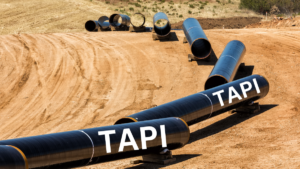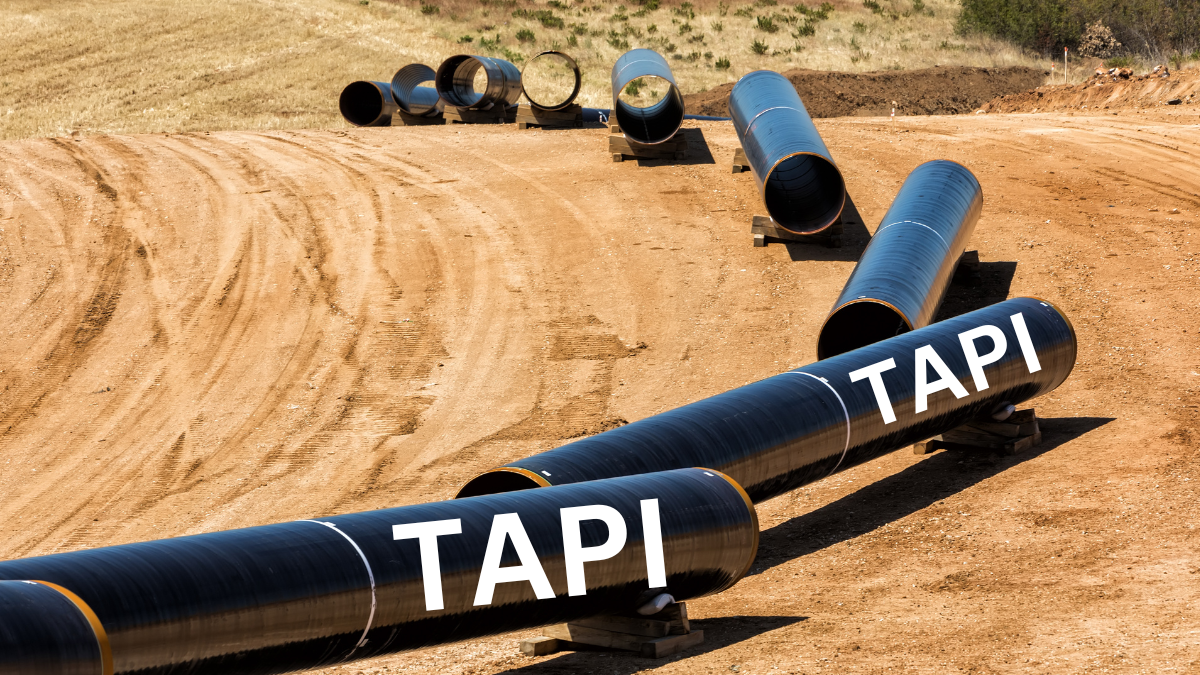The Taliban government in Afghanistan has officially begun work on the long-awaited $10 billion TAPI gas pipeline, a major project that could significantly impact energy supply across South Asia. On Wednesday, Afghan officials joined leaders from Turkmenistan at a border ceremony in Islim Cheshma to celebrate the completion of the pipeline’s Turkmen section and mark the start of operations on Afghan soil.

The TAPI pipeline — named after the four countries it traverses: Turkmenistan, Afghanistan, Pakistan, and India — has faced numerous delays, primarily due to the security challenges posed by the long-standing conflict in Afghanistan. However, Taliban spokesman Zabihullah Mujahid announced that the Afghan side of the project is now moving forward.
“From today, operations will begin on Afghanistan’s soil,” Mujahid said during the ceremony, which was broadcast live on Afghan state television.
Afghan Prime Minister Hassan Akhund and Turkmen President Serdar Berdimuhamedow hailed the project as a major step forward for regional cooperation. “This project will not only benefit the participating countries but will also contribute to the prosperity of the entire region,” President Berdimuhamedow said.
In Afghanistan’s Herat province, where the pipeline will pass through, a public holiday was declared to celebrate the event, and posters were put up in the provincial capital commemorating the milestone.
The TAPI pipeline is set to transport 33 billion cubic meters of natural gas each year from Turkmenistan’s massive Galkynysh gas field, one of the largest in the world. The pipeline will stretch over 1,800 kilometers, passing through key Afghan cities like Herat and Kandahar, before entering Pakistan’s Balochistan province and ending in Fazilka, Punjab, India.
The project’s benefits are expected to be substantial. Pakistan and India will each receive 42% of the natural gas delivered, while Afghanistan will receive 16%. Additionally, Afghanistan is expected to earn approximately $500 million annually in transit fees, providing a vital source of revenue for the country’s struggling economy.
Work on the Turkmen side of the pipeline began in 2015, and construction in Afghanistan was initially planned for 2018 but has been repeatedly delayed due to security concerns and political instability. India’s involvement has also been questioned in the past due to its complex relationship with Pakistan and access to other energy sources, including liquefied natural gas (LNG). However, TAPI remains an attractive option for all participating countries because it promises cheaper and more stable energy supplies compared to LNG.
In addition to the pipeline, the ceremony marked the launch of other bilateral projects between Afghanistan and Turkmenistan, including a new fiber-optic cable to Herat, an electricity line, and the inauguration of a railway bridge.
For Afghanistan, the TAPI project represents a significant opportunity to create jobs and boost the economy. Mujahid noted that around 12,000 jobs will be created during the pipeline’s construction phase, a welcome development in a country facing high unemployment.
Despite the progress, experts caution that the pipeline still faces hurdles. Swapnil Babele, an energy analyst at Rystad Energy, noted that although work is moving forward, “a lot of work remains to be done, and the question of future financing is unclear.” He predicted that the pipeline might not be operational until the next decade.
Once completed, the pipeline will offer the participating countries a more affordable and reliable energy supply than current LNG imports. For the Taliban, TAPI represents the most significant infrastructure project since they regained control of Afghanistan in 2021. Although the regime remains under international sanctions and lacks formal recognition, the pipeline gives Afghanistan a pivotal role in regional energy cooperation between Central and South Asia, both of which are grappling with severe energy shortages.
The Taliban government is also pushing forward with other ambitious infrastructure projects. In July, Afghanistan and China relaunched a major copper extraction project near Kabul, which had been stalled since 2008. These efforts indicate the government’s determination to revive the country’s economy through large-scale investments in energy, mining, and infrastructure.






